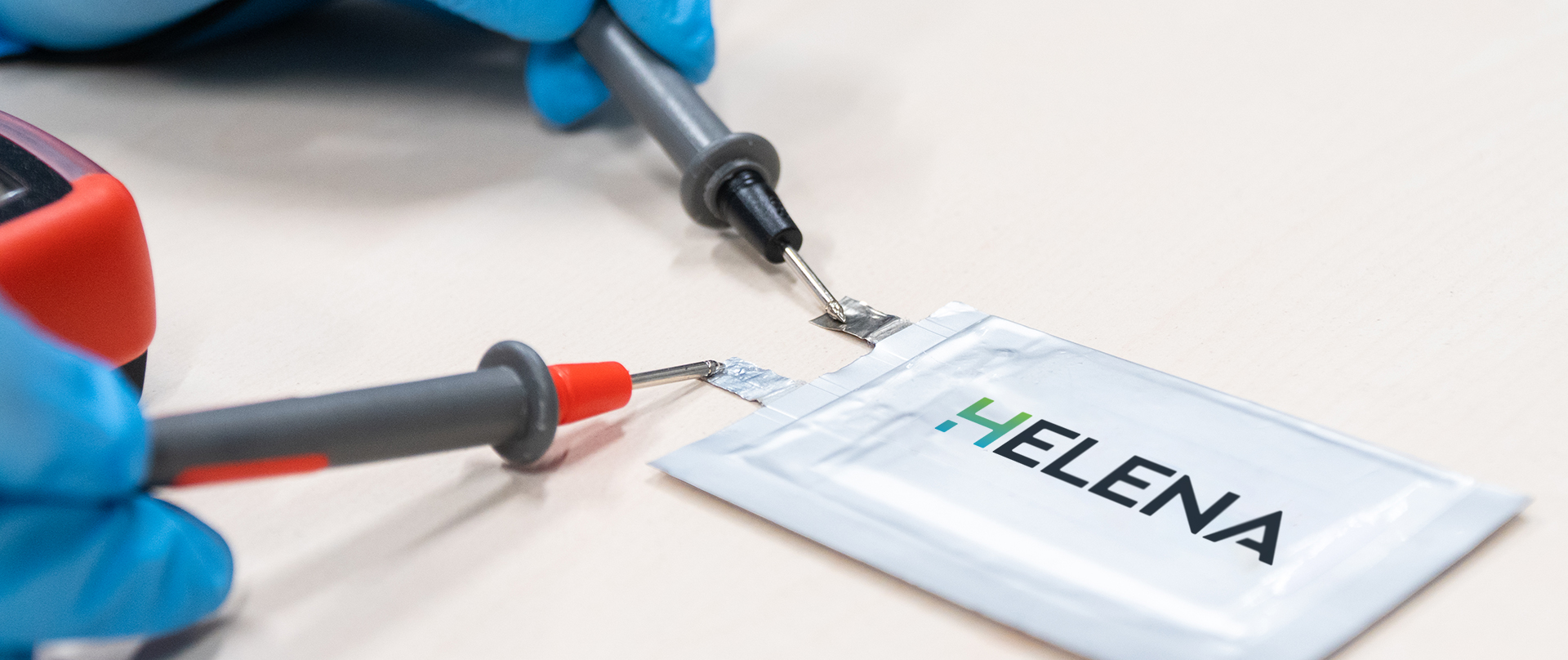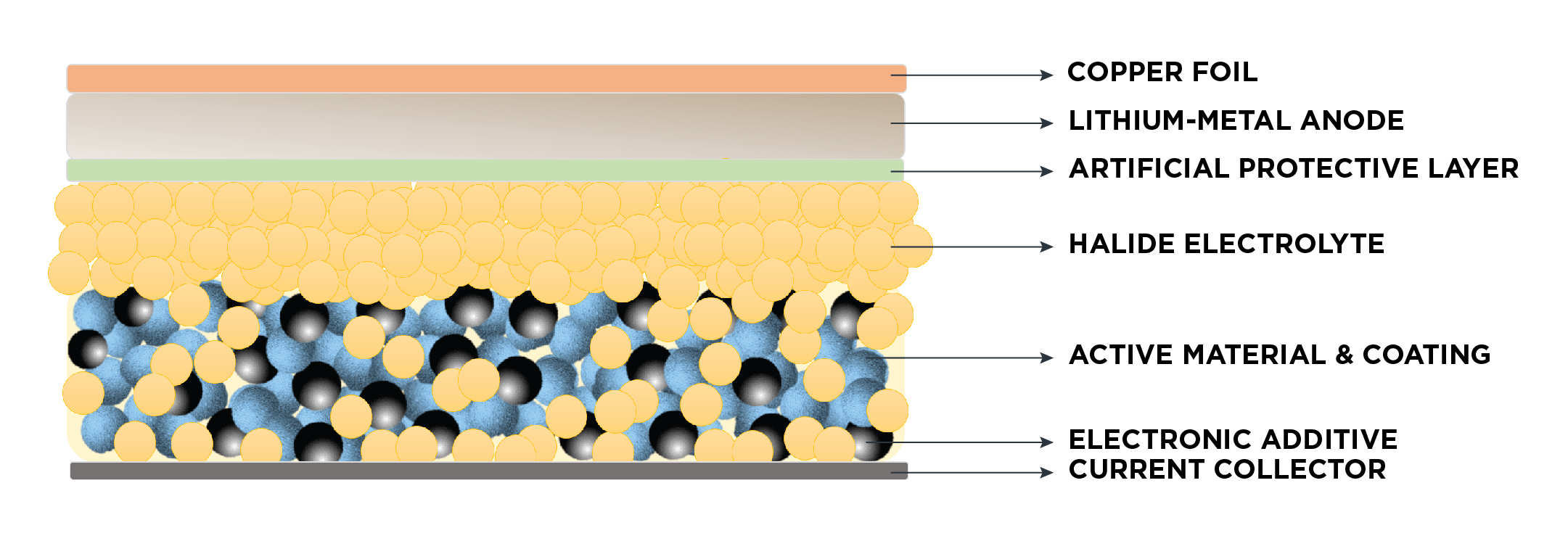Halide Solid State Batteries for Electric Vehicles and Aircrafts
All-solid-state lithium-metal batteries (ASSLMBs) are attracting huge attention because of their high theoretical energy density and much-improved safety. In the development of this technology, a solid-state electrolyte is an indispensable component to replace conventional organic separators and flammable organic liquid electrolytes. Solid-state halide electrolytes have gained revived research interests owing to their high ionic conductivity and high-voltage compatibility.
The transport sector contributes significantly to CO2 emissions with a share of about 30 per cent, with road and air transport being the biggest polluters. In order to achieve the climate targets, there is therefore an urgent need for action in these areas. Electric vehicles play a decisive role in this, as they use energy much more efficiently than conventional vehicles with combustion engines.
However, sustainable electrification is not only about efficiency during operation, but also about environmentally friendly production. This is a key feature of batteries made in Europe: they should be produced with a low carbon footprint and be integrated into the circular economy along the entire value chain. The production of environmentally friendly batteries is therefore an important aspect of fully exploiting the potential of electromobility and paving the way for a sustainable transport transition.
HELENA: Innovative solid-state batteries from European production
The European project HELENA (Halide solid state batteries for Electric Vehicles and Aircrafts) presents a groundbreaking technology aimed at designing batteries with optimized performance for high currents and stable cycling. This technology holds the potential to facilitate the widespread adoption of these batteries in electric vehicles, with a particular emphasis on aircraft applications. HELENA addresses the pressing need for the development of safe and innovative high-energy efficiency batteries with superior power density. These solid-state battery cells, known as 4b generation batteries, are built upon a foundation of high-capacity Ni-rich cathodes (NMC), high-energy Li metal anodes (LiM), and Li-ion superionic halide solid electrolytes. By focusing on the electric vehicle and aircraft sectors, HELENA takes significant strides towards supporting Europe's transition into a climate-neutral continent. This project's endeavors promise to revolutionize energy storage technologies, paving the way for a greener and more sustainable future in transportation.
Within the HELENA project AIT supports the lab scale preparation of battery components and cell assembly with the development of catholyte formulation and processing, electrochemical characterization of individual battery components, assembly and testing of prototype pouch cells. Furthermore, the HELENA cell behaviour in realistic use cases from automotive and aeronautic applications will be evaluated with numerical system simulation.
Artur Tron, battery expert at AIT, highlights that solid-state battery technology is an extremely promising electrical energy storage technology for road and air transport. He explains: "Halide-based solid-state batteries, which are the focus of HELENA, are inherently safer than conventional lithium-ion and other types of solid-state batteries. Their chemical components are non-toxic and non-flammable, and they have higher interfacial stability in contact with lithium metal anodes, which can prevent the formation of lithium dendrites. This is particularly important as lithium dendrites could pose a safety hazard in the event of a short circuit." Through these intrinsic safety features, halide-based solid-state batteries are making a significant contribution to enhancing safety in energy storage technology and strengthening their potential for use in aerospace and on-road applications.
Helmut Kühnelt, Senior Scientist and AIT project coordinator, adds: “After road vehicles, aircraft are now to be electrified and need safe, high energy and power dense batteries. HELENA’s halide-based solid-state cell technology will enable zero-emission air mobility from electric air taxis to 20 seat miniliners and is in line with the needs of future hybrid-electric regional and rotary-wing aircraft.”
This project has received funding from the European Union’s Horizon Europe research and innovation programme under grant agreement No. 10106968 (HELENA).








